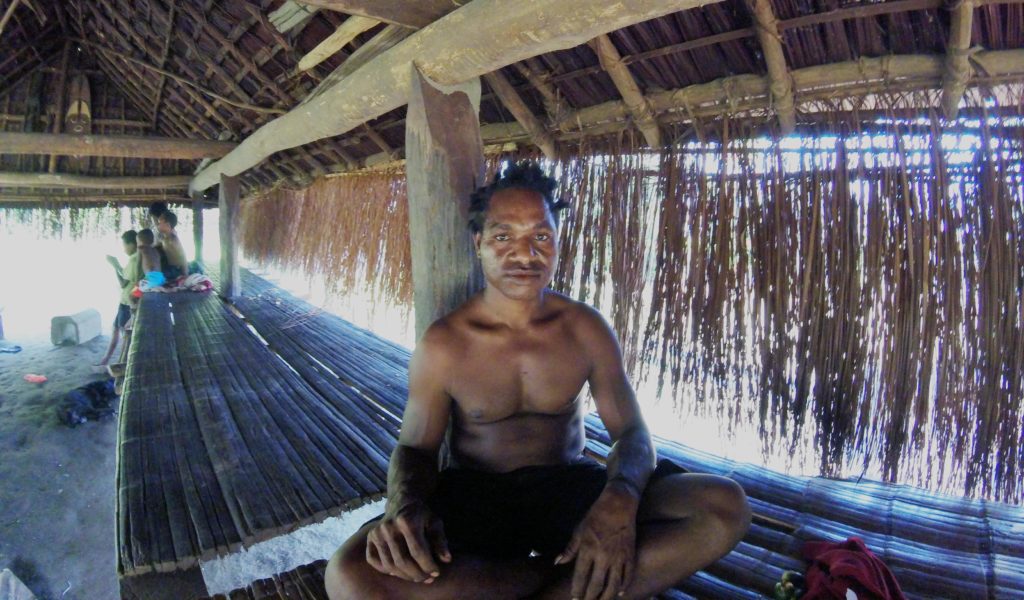Eleven United Nations representatives have written to stakeholders of the proposed Frieda River copper and gold mine in Papua New Guinea (PNG) to raise their concerns about the mine and the risk of failure of its proposed tailings dam.
Ten UN Special Rapporteurs along with the Chair of the UN Working Group on Human Rights and Transnational Corporations, have sent strongly worded letters to the PNG Government; Australian Government; Chinese Government; and Frieda River Limited, among others. The project is being developed in PNG by Frieda River Limited, which is a Chinese state-owned entity but has strong links to Australia.
The letters, which were recently released, raised ‘serious concern’ about the potential and actual threats of the project to human rights, including the rights to life, health, bodily integrity, water and food, and the right to free, prior and informed consent. The letters also raised concerns that the people of the Sepik River ‘will be forced to bear the costs of the project in perpetuity’.
EDO’s PNG legal-advocacy partner CELCOR (Centre for Environmental Law and Community Rights) and its client Project Sepik have called for the rejection of the Sepik Development Project, which includes the Frieda River mine. This mine would be the largest ever in PNG and one of the largest in the world. Waste from the proposed mine would need to be stored forever in a tailings dam 2.5 times the size of Sydney Harbour, in a seismically active area of PNG which is also prone to extreme rainfall.
The letters from the UN representatives follows an urgent appeal to the UN Special Rapporteur on Toxic Wastes, which was filed by Project Sepik and CELCOR in May 2020.

Mr Emmanuel Peni, Co-ordinator of Project Sepik, said, “It is heartening for all Sepik peoples to know that their voices have been heard, and responded to in a powerful way by the lead investigators of these issues in the world today”.
Mr Peter Bosip, Executive Director of the Centre for Environmental Law and Community Rights (CELCOR) Inc. said, “This address shows how serious the risk posed by the Frieda River mine to the Sepik really is,” said Mr Bosip.
Mr Richard Pearshouse, Head of Crisis and the Environment at Amnesty International, said, “For eleven UN human rights experts to jointly express their concerns so early in a mine’s approval process is unprecedented. It’s a clear warning to all parties to expect intense scrutiny of this project from the UN and the international community.”
The letters from the UN representatives further stated, “We remain concerned that critical information about the tailings dam, including the dam break analysis, have been made neither publicly available, nor available to affected community members and human rights defenders who request it.”
Other concerns highlighted in the letters included the risk of a major earthquake in the project area that could damage the tailings dam – with potential impacts that would endure for millions of years – and the risk of pollution from toxic wastes along more than 320 km of pipelines.
The UN Special Rapporteurs stressed the challenge that Papua New Guinea would face in monitoring the tailings dam while the mine was operational, and that Papua New Guinea would have to take on the maintenance of the tailings dam for the rest of time.
“With such strong international attention on this issue, we believe that the Conservation and Environment Protection Authority (CEPA) must reject the company’s Environmental Impact Statement and the Frieda River mine project outright,” said Mr Peni. “The Mineral Resources Authority must also use its power to stop this mine from going ahead, and refuse to approve the project and the proposed tailings dam.”
The 11 UN representatives have also sought further information from the Australian government regarding the measures and steps being taken by Australia to uphold its extraterritorial obligations to protect against human rights abuse by individuals and business enterprises under its jurisdiction. The Australian government has responded by not accepting that it has human rights obligations in relation to the activities of Australian individuals and companies operating overseas.
Mr Peter Bosip said, “The proponent has corporate links to Australia. Therefore, the Australian government has an obligation under international law to take measures to ensure the company and its operations will not violate human rights. In its own environmental impact statement, the proponent has said a tailings dam failure will result in loss of life. This should be cause for grave concern for the Australian government and all Australians.”
BJ Kim, International Program Manager at the Environmental Defenders Office, which works in partnership with CELCOR said, “As the Special Rapporteurs have written, the Australian government’s international human rights obligations extend to the activities of Australians and Australian companies in other countries. Given the proponent’s ties to Australia, the Australian government must be more proactive in its oversight of these kinds of projects to prevent environmental and human rights disasters such as Ok Tedi and Panguna”.
A short film launched this week internationally is available here.
For more information:





